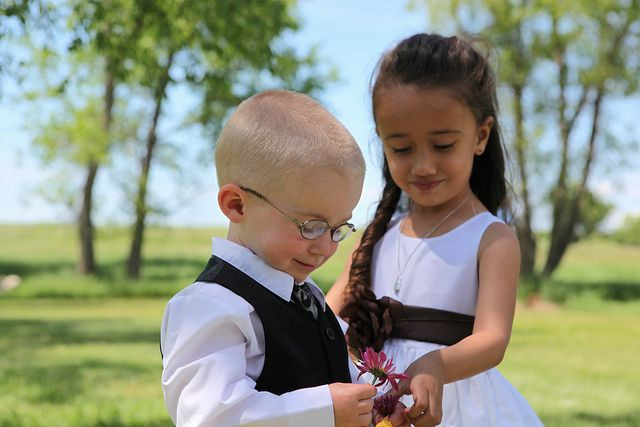Giving Preschoolers Choices Can Teach Them To Share; Plus 4 Other Ways They Can Learn the Value Of Giving

Teaching a child life’s basic values can often be extremely difficult. Whether it’s because we’re just conditioned to abide by such rules loosely or because children are just too stubborn, teaching these values can be met with roadblocks that can be hard to overcome. With regards to sharing, however, one group of researchers has figured it out, and all it involves is giving them a little choice to decide on their own.
“Developmentally, children don’t know what sharing is,” Jill Burkhart, former head of early childhood education at the Washington County Public Schools in Maryland, told the Herald-Mail. “At age three, children are just so egocentric. They don’t understand what others have.”
While previous studies had shown that giving children rewards for sharing backfired, resulting in kids who always expected rewards for the good deed, the study’s researchers wanted to see if the children would let go of the “it’s mine” mentality when given the freedom of choice.
“Many difficult choices allow children to infer something important about themselves,” Nadia Chernyak, a psychological scientist at Cornell University, said in a statement. “In making choices that aren’t necessarily easy, children might be able to infer their own pro-sociality.”
The Value of Sharing
Chernyak and her colleague, Tamar Kushnir, introduced a group of three to five-year-old children to a puppet named Doggie. They told the children Doggie was sad, but he would feel better with a sticker. The children were split into three groups: those who were given the choice to share the sticker or keep it for themselves (difficult choice); those who were given the choice to share the sticker or put it away (easier choice); and those who were told that they had to give Doggie the sticker.
After this exercise, the children were later introduced to another sad puppet, Ellie. This time, they were all given the freedom to share their stickers, and were allowed to decide how many they wanted to share. The children who helped Doggie out with stickers were the ones that were also more likely to give Ellie stickers, however, those who were given the easier choice or forced to give Doggie the stickers were much less inclined to help out Ellie.
Another experiment switched stickers for toy frogs and ripped pieces of paper. Children readily gave up the ripped pieces of paper to Doggie, compared to the more valuable toy frogs. Those who gave up the frog to Doggie were more likely than those who gave up the ripped pieces of paper to give stickers to Ellie.
"Children are frequently taught to share, be polite, and be kind to others. In order to bring us closer to one day figuring out how to best teach children these skills, it is important to figure out which factors may aid in young children's sharing behavior," Chernyak said in the statement. "Allowing children to make difficult choices may influence their sharing behavior by teaching them greater lessons about their abilities, preferences, and intentions towards others."
Other Teaching Methods
In addition to giving children the right to choose, here are some other time-tested methods that may help:
· Show your child that sharing is an important value. Sharing food is a good way to teach them, whether it’s between you and your child or between your child and his or her classmates.
· Play games or do activities that promote sharing, such as sharing the same jar of paint when doing arts and crafts.
· Read books to your child — or let them read — with characters that share. “Books are great tools to teach behavior. Children will often pay more attention to storybook characters teaching moral lessons than they will their teachers or parents because they can identify the characters,” Tania Cowling, a preschool teacher and author of the book Shake, Tap, and Play a Merry Tune, told education.com
· Work with your child. If a conflict arises, instead of determining what should happen, become the mediator, teaching your child about problem solving, without the attitude.
Source: Chernyak N, Kushnir T. Giving Preschoolers Choice Increases Sharing Behavior. Psychological Science. 2013.
Published by Medicaldaily.com



























